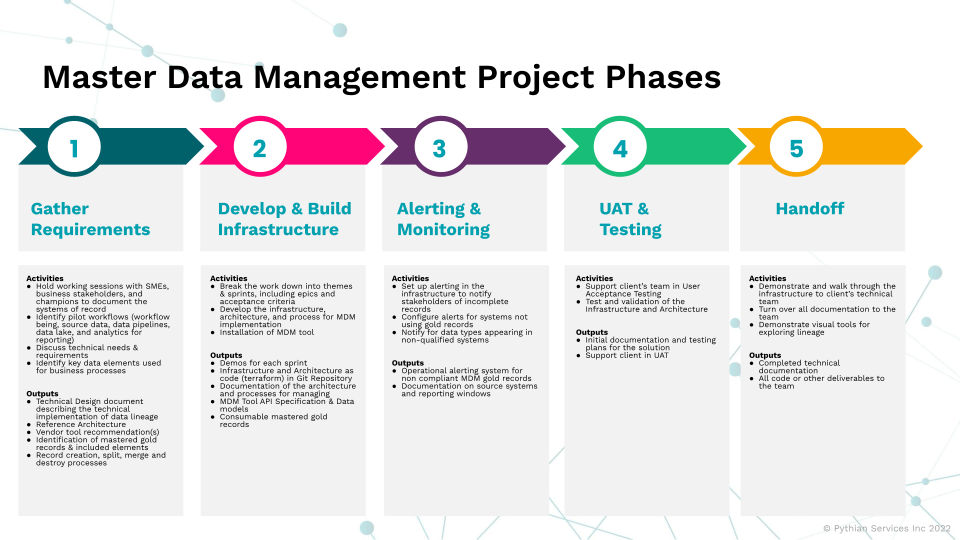How Cloud Computing Has Transformed Over the Last Decade
Improved Resource Utilization and Efficiency for Organizations
“Cloud technology gained momentum in the early to mid-2010s, as companies started moving their workloads off-premise; it has changed the nature of how organizations work. Today, serverless computing provides the ability to outsource software code to automatically run at scale, on request. Containers enable workload portability and have spawned microservices that reduce costs and improve resource utilization and efficiency. Connectivity to the cloud is now ubiquitous, to the point that almost any business can connect their existing infrastructure to the cloud. “As a cloud-native SaaS Content Management System provider, cloud technology provides the ability to rapidly deploy updates and new features on a secure governance framework, in a fully managed, standards-based, hosted environment. For our clients, this provides peace of mind, agility, improved time-to-market, a shift from CapEx to OpEx with predictable costs, while allowing their IT staff to focus on core initiatives.” Garry Brownrigg, CEO and Founder of QuickSilkTransformation of Telephony Services
“Cloud computing has transformed tremendously over the past decade, particularly impacting telephony. Due to cloud computing, telecommunication services have grown in efficiency, mobility, and service — all reasons why VoIP services have become better than traditional phones. For starters, in this day and age, businesses need to take advantage of every opportunity to increase efficiency. Communicating through a VoIP service is more straightforward and easier. Companies can focus on making sure that all stakeholders are well-informed, especially the customers. VoIP services allow for calls to be made wherever there is an internet connection. If you have an off-site or travelling workforce, employees can easily make phone calls even when they are away from their desks. “Next, the needs of a company can change over time. With the help of cloud technology services, a company can adjust its storage and data needs to as little or as much as required. Expanding to a new location or moving to a different office is also easier. Lastly, a VoIP service can be hosted entirely in the cloud, thus requiring less equipment. In using a VoIP service, all the company’s data and business communication needs are coursed through a single network. With all this being said, I think it's safe to say it's truly exciting to think where the development of cloud computing might take us next in the VoIP industry.” Rob Stix, CEO of DirectNetChange in How We Pay for Products and Services
“Cloud computing has changed business in a number of ways, but one thing we don't think about much is how we pay for products and services. Before we moved to the cloud, SMBs used to mark-up prices for one-time transactional fees to buy software. Typically we'd then shackle ourselves to an outdated product to save money by not upgrading — but the penalty here is lost productivity. “The cloud changed that by allowing us to treat software-as-a-service. Now software vendors can amortize the cost of innovation and new features month after month, and instead of holding back features to build an attractive annual release. This allows customers to get new time-saving features faster, potentially accelerating their businesses. “Now, even more payment options are opening up in technology, with major companies like Amazon AWS, Twilio and even ourselves, offering usage-based pricing so businesses can use only as much or as little as they need at any given time. Moving from subscription to usage-based pricing can save money and open the door to more usage for less overall cost, and more freedom for businesses to choose.” Greg Wood, VP of Product Management at MASVRemove Burdens for Software Developers
“Cloud computing has been a huge boon to independent software developers. Before cloud computing, developers had to put together budgets for expensive servers, figure out how to use all that computing power to justify the investment, and manage hardware lifecycles, which come with continual expenses. Cloud computing permits agile workflows, which means that an independent developer can spin up a machine quickly for a fixed-duration project. This is far more economically feasible and removes the burden of hardware management, which can often be overwhelming for small teams.” Mark Rapley, Director of Operations at KWIC InternetImproved Operations and Reduced Expenses in the Healthcare Industry
“Cloud computing has helped companies improve their operations and reduce their expenses. It's unlimited scalability, offered flexibility and overall dependability have benefited organizations and companies in so many ways. For example, cloud solutions are revolutionizing the healthcare industry. “With the use of cloud computing, healthcare transitions are easier and a lot more reliable. It also helps doctors and patients to easily stay connected with each other, making interaction and collaboration a lot more convenient. Besides all that, advanced concepts such as ‘smart beds’ and automatic home medication dispensers are already being implemented, with the help of other technologies such as IoT and AI.” Kenny Trinh, Managing Editor of NetbooknewsTransformed Cybersecurity Sector
“Cloud computing has brought about massive changes in the cybersecurity sector. Aside from the functionality and many benefits of cloud computing, cybersecurity experts need to understand the risks at play and learn how to prevent any security issues that may be caused due to hosting data in a cloud-based environment. There have been many things to learn over the years and adjustments have needed to be made to security measures in order to keep businesses’ data safe. That being said, cloud computing is an excellent way to store data and the safety side of things is great. Not only are you storing everything in an environment which you have more control over, but the security benefits of being able to access and protect your data in one location (rather than having data spread over various local desktops), are massive.” Will Ellis, Founder of Privacy AustraliaIntroduction of Multi-Cloud Platforms
“Enterprises are moving toward multi-cloud computing to not limit themselves to the features of a single cloud. We're beginning to see enterprises ensure that their choice of cloud doesn’t limit their agility and performance. Initiatives like Azure Arc, where it’s possible to deploy Azure technology on Amazon servers, clearly shows how cloud vendors have come to support this journey. Over the past decade, we've seen a shift that cloud vendors are shying away from retaining customers by locking them to a single cloud vendor, but instead convincing them to stay by being the best in some areas – and admit that other vendors might offer better services in other areas. “On another note, software development has shifted to be all about flexibility and making sure that you’re free to choose any technology or cloud vendor that might fit your needs the best. By now most cloud vendors support all major programming languages, meaning that the choice of cloud doesn’t have an impact on your choice of technology. At the same time, the docker movement and the rise of ‘infrastructure as code’ tools like Terraform enable developers to be independent of the cloud it will be hosted in. Developers can define their infrastructure once, and then deploy in whichever cloud suits them.” Oskar Konstantyner, Product Owner and Team Lead at TemplafyMade IT Infrastructure Cheaper, Faster, and Easier
“Cloud computing has made things cheaper, faster, and easier. I witnessed these positive impacts in the financial industry. However, these benefits should be universal across all industries that use the cloud. Industries first positively reacted to the fact that they can lower their IT costs. Building and running on-premise IT infrastructure require users to pay much higher prices. The speed of development and release was improved significantly. Cloud service vendors such as AWS and Azure provide the platform that is ready to use and solutions to common IT problems. Lastly, it is easier. Cloud users access services on their web browsers and control their resources anywhere there is an internet connection. The cloud providers also maintain well-written documents and training materials so that people can just follow their instructions to do specific tasks.” Peter Song, Machine Learning Engineer at Tic:Toc Becoming prevalent in the 2010s, cloud technology gained large momentum and as a result, a lot has changed in the world of cloud computing over the last ten years. These expert insights solidify the fact that cloud computing has become the new standard for consumers and businesses alike. When it comes to cloud computing, Pythian is your all-in-one solution. Whether in need of cloud management, strategy, or migration services, our team is excited to help. Contact us today to get started!On this page
Share this
Share this
More resources
Learn more about Pythian by reading the following blogs and articles.
Have the LLM Wars Begun?


Have the LLM Wars Begun?
Apr 26, 2023 12:00:00 AM
2
min read
SAP Business Technology Platform (SAP BTP) Series: An Overview


SAP Business Technology Platform (SAP BTP) Series: An Overview
Jun 26, 2023 12:00:00 AM
2
min read
Approaching Master Data Management


Approaching Master Data Management
Oct 27, 2022 12:00:00 AM
3
min read
Ready to unlock value from your data?
With Pythian, you can accomplish your data transformation goals and more.
